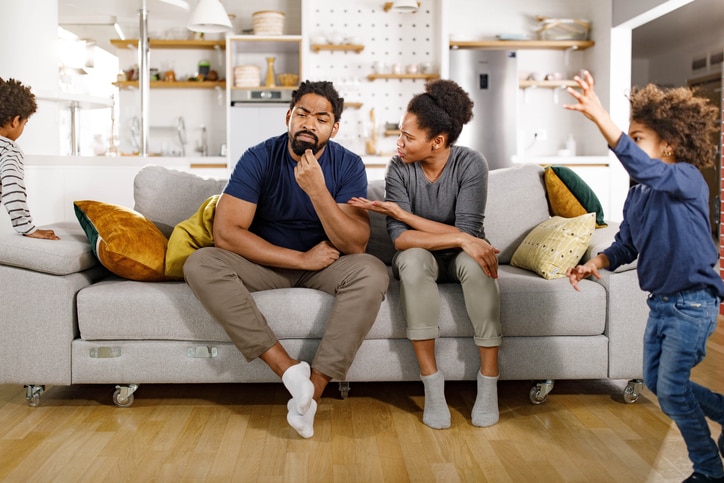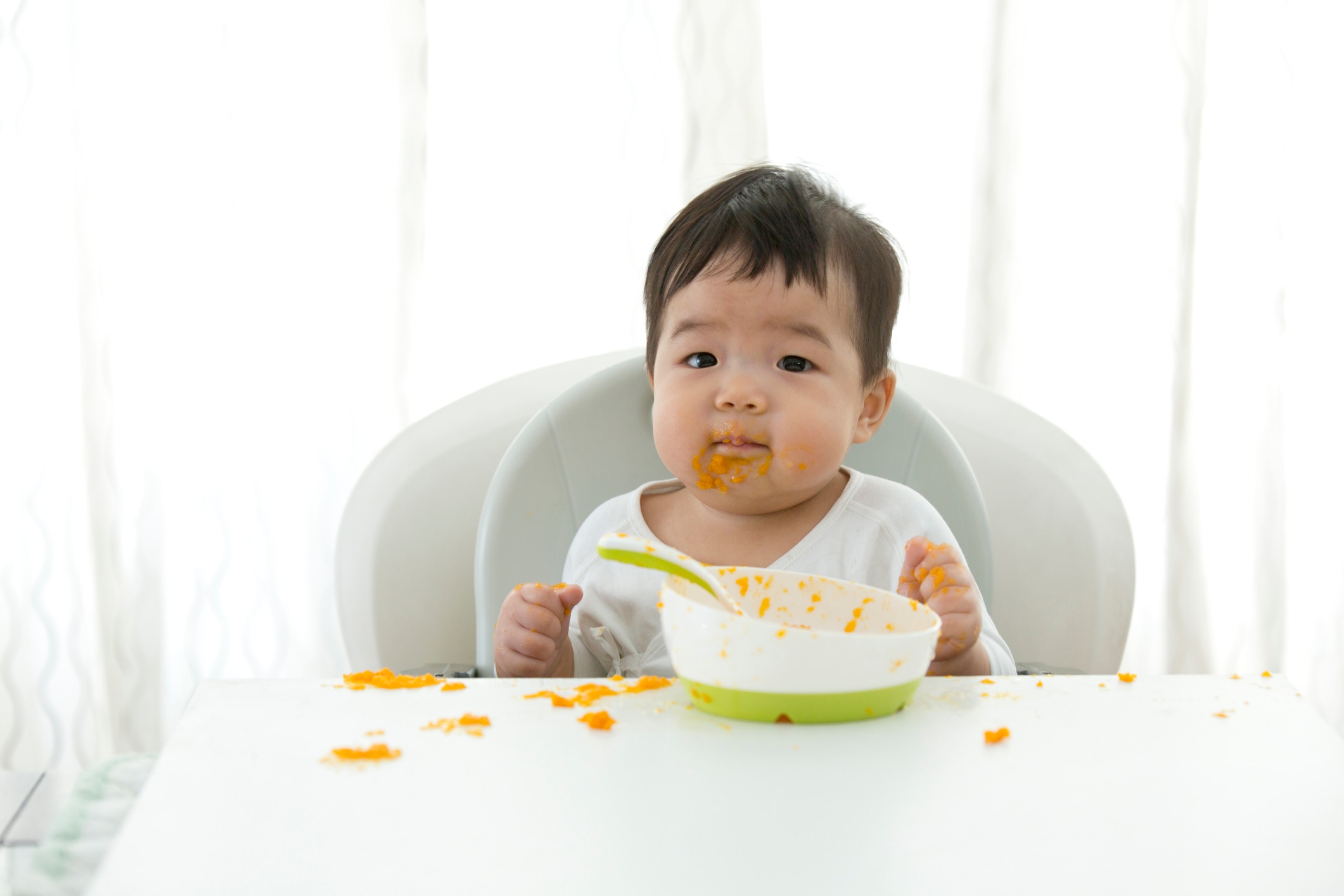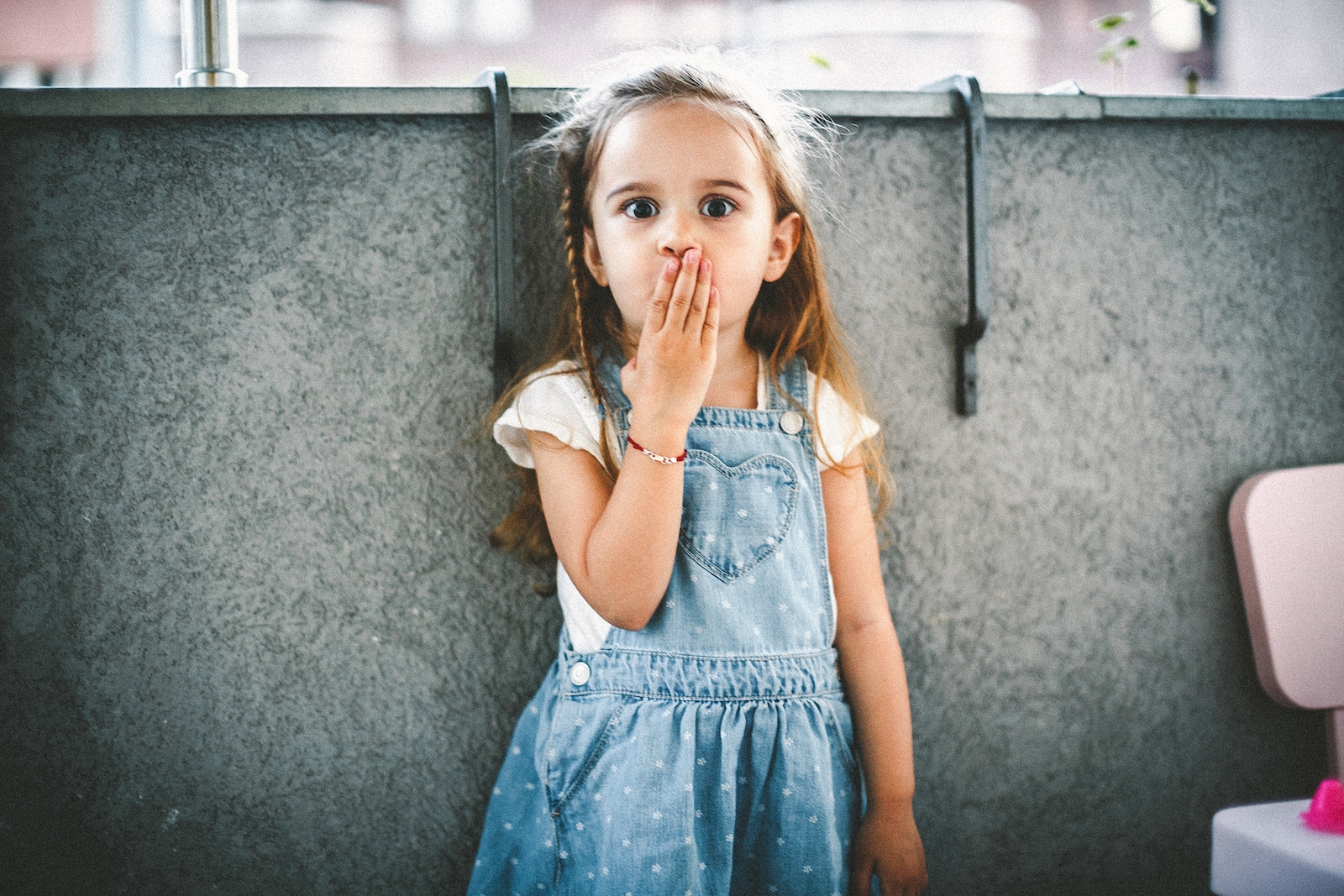Making the decision to stay together for the kids — or not — generally isn’t something couples take lightly. It’s often a choice that’s clouded with emotion, making it difficult to conclude what’s truly best for everyone.
“Splitting up is scary and may be unsettling in the short-term,” notes Kristen Mosier, a licensed marriage and family therapist in New York and New Jersey. “But staying together can cause ongoing stress for all family members.”
In other words: It’s a really hard decision to make. Here, experts offer input on navigating this tricky terrain, as well as tips for couples who are struggling with whether to stay together for the kids.
Why do couples stay together for the kids?
According to Mosier, when couples stay together for the kids, it’s often motivated by the belief that “splitting up will be more damaging than staying together.”
“They hope that by maintaining the routine and structure of the family, they will protect their children from long-term harm,” explains Mosier. (Spoiler alert: That’s not always the case — and we’ll discuss why shortly.)
Another common reason is finances, notes Nona Kelly, a licensed marriage and family therapist with Thriveworks in Nashville. “It’s less expensive to raise a family while living under one roof than to separate and double financial responsibilities,” she explains.
Additionally, for many folks, splitting up with a partner means less time with the kids — and few parents want that. “Many couples stay together because they don’t want to have to split their time with their children,” Kelly says. “So, if they can find a workable solution and live under one roof, it’s easier to spend time with the children.”
“If the family unit is strong and the couple has emotional maturity, it’s possible to find a place of agreement that it is more beneficial to stay married.”
— Nona Kelly, a licensed marriage and family therapist
Is it a good idea to stay together for the kids?
Each relationship and situation is unique, but there are circumstances in which it can be beneficial to stay together for the kids, “even for a little bit of time,” Kelly notes.
“If the family unit is strong and the couple has emotional maturity, it’s possible to find a place of agreement that it is more beneficial to stay married and keep the family cohesive rather than divorce or separate and create possible stressors for all involved,” Kelly says.
Put another way: If both parties can truly put their differences aside for the sake of the children, staying together in order to provide stability can be a plus.
Other possible benefits of staying together for the kids, according to Kelly, include:
- Finances remain relatively the same.
- Time with children remains the same.
- The possibility of the relationship being rebuilt.
The risks of staying together for the kids
Generally speaking, the experts say the negative impacts of staying married for the kids usually outweigh the benefits.
“Staying together for the sake of the kids increases the possibility of bickering or actual fighting, particularly when couples lack emotional maturity,” Kelly notes. One study found that when kindergarteners were exposed to continual fighting by their parents, they were at a higher risk for anxiety, depression and behavioral issues by the time they reached seventh grade.
“You may think you’re protecting your kids from your arguments if you don’t yell and scream in front of them, but children pick up on subtle emotions more often than we give them credit for.”
— Kristen Mosier, licensed marriage and family therapist
And even if you’re civilized in front of the kids, Mosier notes, you’re probably not hiding household tensions as well as you think.
“You may think you’re protecting your kids from your arguments if you don’t yell and scream in front of them, but children pick up on subtle emotions more often than we give them credit for,” she explains. “Some research has shown that babies as young as six months can detect their parents’ distress. If there’s tension, even kept behind closed doors, children will know, which can contribute to feelings of confusion, anxiety and insecurity.”
Additionally, most kids draw their ideas of what a romantic relationship should look like based on their parents. “When kids notice mom and dad not having an active, loving relationship, it can possibly set their expectations of relationships and marriage on a less than ideal path,” notes Kelly.
What factors should be considered in the decision to stay together for the kids?
Both Mosier and Kelly note that when faced with the decision to split up or stay together for the kids, there are a few important questions to consider, including:
- What type of relationship are we modeling for our kids?
- What type of environment are we living in?
- Are we arguing in front of our kids or is there obvious animosity in the relationship?
- Is the family actually being harmed by us staying under one roof?
- Are the kids old enough to understand the reasons why we are ending our relationship?
- Is there a way for us to work together to make the separation easier for the children?
“Examining and answering these questions will make the decision clearer and easier, and help outline what the next steps might look like for the family,” notes Kelly.
How enlisting a therapist can help
Therapy is always beneficial during times of transition, including the navigation of a separation, as it can allow each member “time and space to openly discuss feelings and concerns,” explains Kelly.
A therapist can offer a supportive space to discuss the future of your relationship. And, whether you decide to stay together or separate, they can also provide helpful guidance in navigating what comes next.
“Couples counseling can assist by providing a safe place to discuss plans and feelings surrounding the decision to separate,” Kelly continues. “Therapists can encourage both parties to look at options they may not have previously thought of, as well as helping with a parenting plan.”
The bottom line
When it comes to deciding whether you should stay together for the kids or go your separate ways, there are a number of factors to consider, with the emotional maturity of both parents being at the top.
If you decide to split up — and even if you don’t — enlisting a therapist can be beneficial to all parties involved, including the kids. “Children can be a motivating factor for seeking counseling and potentially finding ways to heal your relationship,” Mosier says. “And when reconciliation isn’t possible or desired, a counselor can help parents navigate the separation, as well.”





